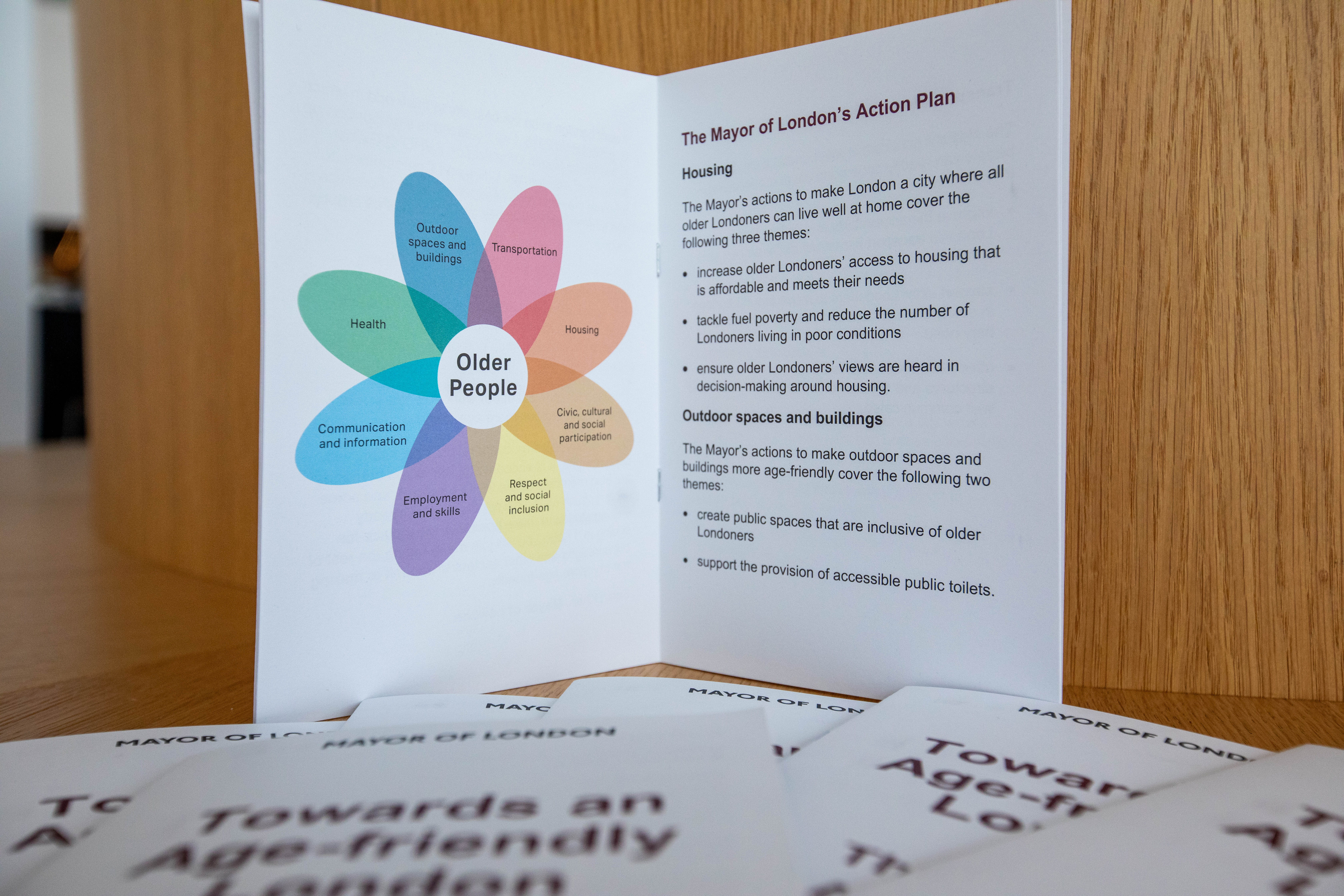Whither an Age Friendly London

Published on 01 December 2023 03:25 PM
Last Wednesday’s launch of the Mayor of London’s Age Friendly Action Plan didn’t have any fireworks, nor was City Hall lit up so passengers on flights into London’s City airport could share in celebrating London becoming age friendly. Indeed, it didn’t even have the Mayor present, despite his name on the report’s cover. Debbie Weekes -Bernard a Deputy Mayor provided the opening welcoming words.
The good news is there is a plan after many years work, effort, and lobbying. The Mayor can include it in his next year’s electoral manifesto, GLA staff can sigh and tick the done box and the Centre for Ageing Better can include London as a big red blob on the map of age friendly cities under their watch. And older Londoners in trusting mode can probably see there is a good intention here.
But as older Londoners stop their partying the question is what happens next. Will the plan make a difference and lead to concrete improvements in the lives of older people ?
The forty-five-page action plan promises a range of actions across the different “domains” required in the age friendly network (Towards an age friendly London: the Mayor's action plan | London City Hall.) Much of this is recycling existing GLA actions and initiatives many of which are generic about increasing diversity and inclusion – including older people but not bespoke for older people. And again, most of the plan is about what is in the Mayor’s orbit, though there are some actions where the Mayor’s soft power will be employed to galvanise Boroughs and other partners into action. The plan contains some mention of evaluation but limited to “tracking progress” in some areas.
There’s probably a sophisticated AI tool by now which can mark plans and policies as to how well put together they are, but obviously the real test is what happens on the ground in terms of impact.
But sadly, the jury is out on the effectiveness of the plan. It will only work is it becomes a live plan and carries sway within the GLA – but most important if it galvanises our most famous older Londoner – the Mayor.
This will depend on the next steps and as the London Age Friendly Forum observed this is only the start of a broader process of ensuring policy making and services across London truly reflect older people’s needs.
First, we need to have the expertise of older people in their role in having shared ownership of the plan once there has been a campaign to publicise it. The plan is silent on how it will be scrutinised by older Londoners – will the Mayor set up a London Age Forum like other cities have set up?
Secondly, we need to have better outcomes set out with hard measures of whether actions are working. Many older Londoners are facing poverty, employment challenges and economic security and the plan outlines actions but doesn’t include base line figures to check what happens in a year’s time.
Third the plan isn’t strictly a London wide one as it is only limited to the Mayoral responsibilities.True Age Friendliness requires all of London Government to participate. Only one in five London Boroughs have signed up to being age friendly though hopefully more may be prompted. London Councils didn’t tweet welcoming the Plan and their website hasn’t included anything on it within their age friendly section.
Fourth, plans are only as good as how they are monitored, otherwise they become aspirational with the risk of disappearing into the GLA organisational ether. Will we see an annual report on the state of age friendliness across London reviewed not just by GLA officers and assembly members but also the London partnership Board?
The final test of the action plan is whether it has a positive impact on how the GLA takes into account older people in its policy making. In particular how it now fits into strategic planning by the GLA and shapes those plans. Key to this is how well GLA officers understand age friendliness, what matters to older people and what that means in their policy and service areas. Only one in five GLA officers are above the age of 50 so there might be value in age awareness training for staff – and include assembly members while you’re at it.
Despite all these suggestions, the careful reader will spy that the GLA has been cautious in its approach – the title is only Towards an Age Friendly London and the Mayor in his foreword stated we must be honest about the challenges ahead. So, working with older Londoners, seeing this plan as a prompt towards better planning and policy making for older Londoners, being more upbeat in its messages across London then these challenges can be met. And the Mayor and other older Londoners will then benefit and feel valued.
Tim Whitaker is a Trustee of Wise Age - the charity working for older workers and for age friendly workplaces in London.

